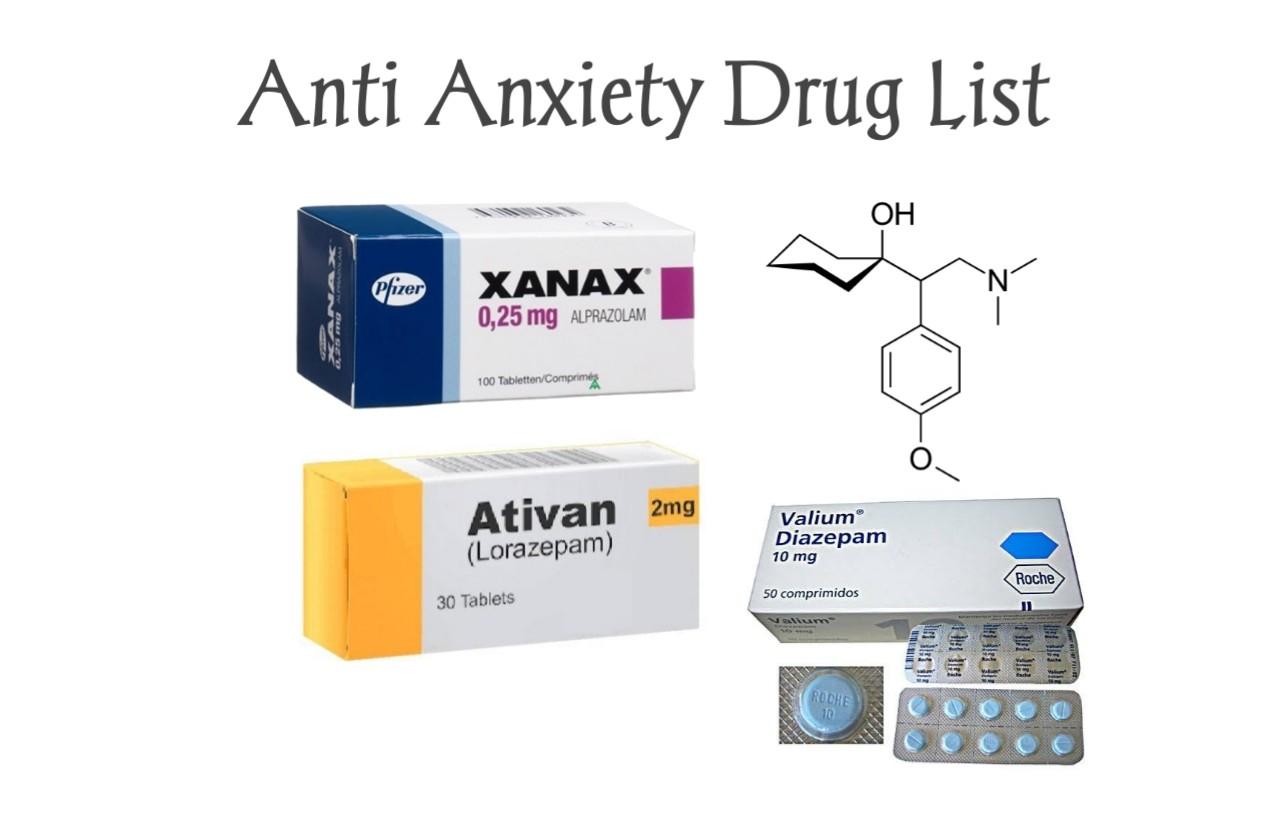What if the medication helping your anxiety could also help you shed a few pounds? That was the surprising question that popped into my head while scrolling late one night. I had been dealing with chronic stress, low mood, and creeping weight gain—not from bingeing, but from pure emotional burnout. When I typed “best anti anxiety meds for weight loss” into Google, I expected conflicting opinions. But what I found was a handful of options that might actually do both: calm the mind and lighten the body.
So, after talking with my doctor and reviewing real data, I tried one of them. Here’s everything I discovered—what worked, what didn’t, and how anxiety meds can affect your weight, for better or worse.
Why More People Are Looking for Anti-Anxiety Meds That Don’t Cause Weight Gain
Let’s be honest—starting medication for your mental health is a big step. But what holds many people back? The fear of weight gain. For those of us already navigating emotional eating, hormone imbalances, or fatigue, the idea of gaining 10 pounds just to feel mentally stable feels like a cruel trade-off.
When people search for “best anti anxiety meds for weight loss,” they’re really asking:
-
Is there an antidepressant or anti-anxiety med that won’t make me gain weight?
-
Can any of these actually help me lose weight?
-
What are the side effects of Prozac, Wellbutrin, Cymbalta, etc.?
-
Is emotional eating tied to serotonin or dopamine?
-
Will my cravings go away if I treat my anxiety?
These questions point to a larger reality: mental health and physical health are connected, especially when it comes to stress, hormones, and how we fuel ourselves.

What the Research Says About Anxiety Meds and Weight Changes
Most anti-anxiety and antidepressant medications fall into several major classes:
-
SSRIs (Selective Serotonin Reuptake Inhibitors): e.g., fluoxetine (Prozac), sertraline (Zoloft), escitalopram (Lexapro)
-
SNRIs (Serotonin-Norepinephrine Reuptake Inhibitors): e.g., duloxetine (Cymbalta), venlafaxine (Effexor)
-
Atypical antidepressants: e.g., bupropion (Wellbutrin)
-
Benzodiazepines: e.g., lorazepam, clonazepam (often short-term use)
-
Buspirone (Buspar): a non-sedating option often used for generalized anxiety
Here’s the weight-related breakdown based on clinical data and real-world reviews:
Bupropion (Wellbutrin)
-
Known for weight loss in some people
-
Boosts dopamine and norepinephrine
-
Often prescribed for depression with fatigue, emotional eating, or weight gain
-
Also used in the FDA-approved weight loss drug Contrave (combined with naltrexone)
Fluoxetine (Prozac)
-
Sometimes leads to initial weight loss, especially at higher doses
-
Often used for anxiety-related depression, OCD, or binge eating disorder
-
Long-term use may become weight neutral
Duloxetine (Cymbalta)
-
Weight-neutral for many users
-
May lead to modest early weight loss
-
Also used to treat pain, which can increase physical activity
Buspirone
-
Rarely causes weight gain
-
Can reduce stress-related eating
-
Takes longer to kick in, but more stable than benzos
Not all bodies respond the same, but this list consistently comes up in sources like Verywell Health, Medical News Today, and Everyday Health.
My 3-Month Experience: Bupropion, Fluoxetine, and Buspirone
With guidance from my doctor, I tried each of these medications for several weeks, tracking mood, appetite, and weight. Here’s how it went.
Month 1: Bupropion (Wellbutrin XL)
I started on 150 mg once daily, eventually increasing to 300 mg. Within a week, I felt more awake—mentally and physically. My cravings dropped, especially for sugar and carbs. I wasn’t skipping meals, but I noticed I felt full faster and didn’t graze during stress.
By week 4, I’d lost 4.2 pounds without dieting. The best part? I felt motivated again. I started walking in the mornings and didn’t have to drag myself.
Side effects: slight dry mouth, increased focus (almost too much in the beginning)
Month 2: Fluoxetine (Prozac)
I tapered off bupropion and began 20 mg of Prozac. The first week felt “meh.” I was calm, but also a little flat. My appetite returned slightly—especially at night. I was more emotionally neutral, but I didn’t feel driven.
By week 3, I was stable but had gained back 1.5 pounds, mostly due to late-night eating. I was less anxious, but also less motivated to move. I felt like I was watching life happen, not participating in it.
Side effects: mild headache, less motivation, digestive upset the first few days
Month 3: Buspirone
This was a surprise win. I didn’t expect much, but at 15 mg twice a day, I noticed calmer mornings and fewer anxious thoughts. I was less prone to emotional eating. I didn’t lose much weight (only 1 pound), but I didn’t gain either.
I paired this with light strength training and better sleep hygiene. My mind felt less “rushed,” and my eating became more intentional.
Side effects: none for me, but some report dizziness early on

So, What Are the Best Anti Anxiety Meds for Weight Loss?
Based on research and my experience, here’s a simple guide:
If you want to lose weight while treating anxiety, consider:
-
Bupropion (Wellbutrin) — best for energy, motivation, and appetite control
-
Fluoxetine (Prozac) — may help in short-term or binge eating patterns
-
Duloxetine (Cymbalta) — good for anxiety and chronic pain, with low weight gain risk
-
Buspirone (Buspar) — helpful for generalized anxiety, weight-neutral
-
Contrave (bupropion + naltrexone) — FDA-approved for weight loss, also boosts mood
Medications to watch cautiously (may cause weight gain):
-
Paroxetine (Paxil)
-
Mirtazapine (Remeron)
-
Amitriptyline, nortriptyline (tricyclics)
Every medication has trade-offs. But if you’ve been avoiding anxiety treatment because of weight fears, talk to your doctor. There may be options that support both your mental health and weight goals.
Practical Tips If You’re Considering These Meds
Don’t go in blind. Here are some real-world insights that helped me:
Start low, go slow
Especially with bupropion or fluoxetine—gradual titration avoids side effects.
Track mood and food
Use a journal or app to connect emotions to eating patterns.
Give it time
Most medications take 4–6 weeks to stabilize. Don’t judge by week one.
Avoid caffeine overload
Some meds already boost energy. Combining with too much caffeine may cause anxiety spikes.
Keep moving
Even light activity like walking can amplify mood and weight results.
Hydrate and nourish
Nutrient-dense foods help manage energy, digestion, and cravings.
FAQs About the Best Anti Anxiety Meds for Weight Loss
Which anti-anxiety medication causes weight loss?
The most commonly reported option is bupropion (Wellbutrin). Others like fluoxetine (Prozac) and duloxetine (Cymbalta) may also support weight reduction, especially early on.
Can I lose weight on anxiety medication?
Yes, depending on the medication. Some options are weight-neutral or appetite-suppressing. Lifestyle factors play a big role too.
Is Wellbutrin good for weight loss and anxiety?
Wellbutrin is approved for depression but also used off-label for anxiety. It can reduce appetite, increase energy, and aid in weight loss for some people.
What’s the best antidepressant that doesn’t cause weight gain?
Bupropion is most associated with weight loss. Fluoxetine and duloxetine are often weight-neutral. Buspirone is another anxiety treatment with minimal weight change.
Will Prozac help me lose weight?
It may lead to modest weight loss in the short term, especially at higher doses. Long-term effects tend to balance out.
Are there anti-anxiety meds that won’t cause weight gain?
Yes. Buspirone, bupropion, fluoxetine, and duloxetine are among the better options. Always speak to your doctor about your personal risk factors.
What if I gain weight on anxiety meds?
Talk to your doctor. There may be alternatives with fewer metabolic effects, or they can help you add lifestyle strategies to minimize weight gain.
Healing Doesn’t Have to Come with Extra Pounds
For years, I thought I had to choose: a calm mind or a healthy body. But the truth is, the best anti anxiety meds for weight loss do exist. They may not work the same for everyone, but with the right care, you can find an option that helps you feel better without sacrificing your body goals.
If you’re on the fence, pick one thing—read a patient review, schedule a consult, or track your emotions for a week. Take one step toward healing that feels supportive, not scary.
Already tried something that helped your mood and weight? Let us know. Your story might make someone else feel less alone.
You deserve to feel mentally clear, emotionally grounded, and physically good in your skin.